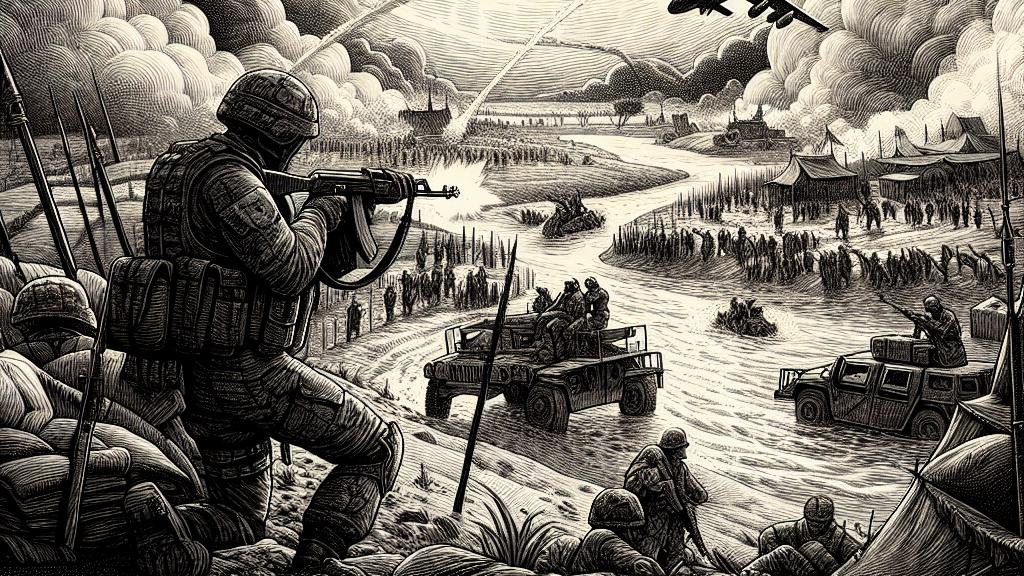Netanyahu Declares Israel's Strategic Strikes Against Hezbollah
Overview
- Israel intensifies its military operations against Hezbollah in Lebanon, representing a significant escalation in hostilities.
- Prime Minister Netanyahu emphasizes a strict, zero-tolerance policy in response to any attacks that threaten Israeli citizens.
- The primary objective remains to facilitate the safe return of families displaced from northern Israel due to ongoing conflict.

Escalation of Conflict
On September 22, 2024, Prime Minister Benjamin Netanyahu boldly asserted that Israel has executed a series of decisive strikes against Hezbollah, underscoring the gravity of the situation. Following an explosive week characterized by heavy cross-border fire, Netanyahu's message is clear: Israel will respond forcefully to any threats to its sovereignty. This commitment mirrors Defence Minister Yoav Gallant's assurance that military operations will not only persist but expand until the displaced residents of northern Israel are safely returned to their homes. The intensity of these statements illustrates a pivotal moment in Israel's military strategy, one that seeks to crush any notion of impunity for aggressors.
Impact on Regional Dynamics
As the war with Hamas in Gaza continues into its tenth month, the regional landscape remains extraordinarily volatile, with fears of a two-front conflict prompting significant concern. The loss of life is staggering, and as the Israeli military grapples with the challenges on both fronts, questions about strategic clarity loom large. Although Netanyahu maintains a hardline stance, prominent voices within the Israeli military and allied governments express discomfort with the lack of a defined post-conflict strategy. This dual war approach could lead to ongoing violence, not just in Gaza but also along the precariously positioned border with Lebanon. The historical backdrop of animosity between Hezbollah and Israel only intensifies these current hostilities, reminding all parties involved that unresolved issues can reignite with little provocation.
Historical Context
The complex relationship between Hezbollah and Israel is steeped in decades of conflict and political maneuvering. Hezbollah's rise during the turbulent 1980s, amid Lebanon's civil strife, symbolizes a pivotal shift in both regional and Palestinian dynamics, as the group increasingly positioned itself as a champion of Palestinian rights. Recent military activities from Hezbollah, therefore, appear not only as tactical responses but as expressions of a longstanding regional ideology. Moreover, these actions resonate with the deep-seated grievances stemming from Israel’s military actions in Gaza—grievances that cannot be overlooked. Understanding this multifaceted history is essential; it reveals the underlying tensions and sets the stage for potential future conflicts unless comprehensive dialogue can pave the way for peace.

Loading...